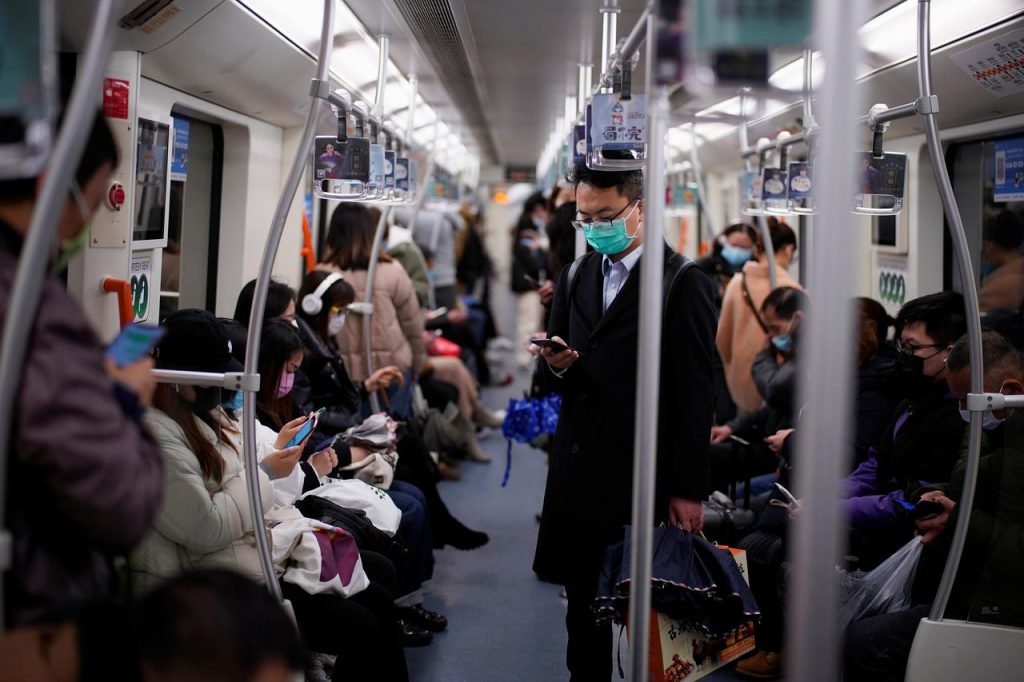China’s business and travel activities are steadily recovering after being disrupted by the coronavirus outbreak, but rapidly rising infections globally will pose a challenge to the country’s broader economic resumption.
Nomura estimated in a research report on Monday about 61.6% of the firms hardest hit by the health crisis in China have resumed work as of March 8, and 74.1% in the broader economy.
China reported on Monday no locally-transmitted cases of infection on the mainland outside of the central province of Hubei, the epicenter of the outbreak, for the second straight day.
But the authorities continue to be mindful of risks stemming from foreign visitors and Chinese nationals traveling back to China from affected regions.
The flu-like virus was first detected in the city of Wuhan late last year and has since spread to more than 90 countries. While new infections have slowed in China, there are concerns other countries are not prepared. More than 25,000 people have been infected and 503 have died from coronavirus outside mainland China as of Monday.
Calls at Chinese ports rose rapidly since the second week after the prolonged Lunar New Year holiday and have surpassed 2019 levels by end-February, according to data tracked by Clarksons Research, a maritime brokerage and consultancy.
China represents 22% of seaborne imports and 33% of shipbuilding capacity in the world.
Major ports in China were seeing ship congestion and cargo backlog as workers were unable to return to their posts amid the coronavirus travel curbs.
Clarkson Research also suggested more information is needed to understand if the uptick trend is sustainable.
“While the trend suggests activity is stabilizing, a second dip is possible once initial backlogs are cleared,” said Stephen Gordon, analysts at Clarksons Research, adding that operational challenges were also having an impact, including crew changes and acceptance of ships at ports.
Several Chinese port cities imposed a 14-day quarantine on all arrivals as Beijing addressed the threat of a rise in coronavirus cases in neighboring South Korea and nearby Japan.
With the easing of cross-region and intra-city travel curbs, the transportation ministry told a news conference on Saturday that all migrant workers were expected to return to their workplaces by early April.
Transportation ministry data showed that more than 300 million people had gone back to work in the country after the Lunar New Year holiday.



